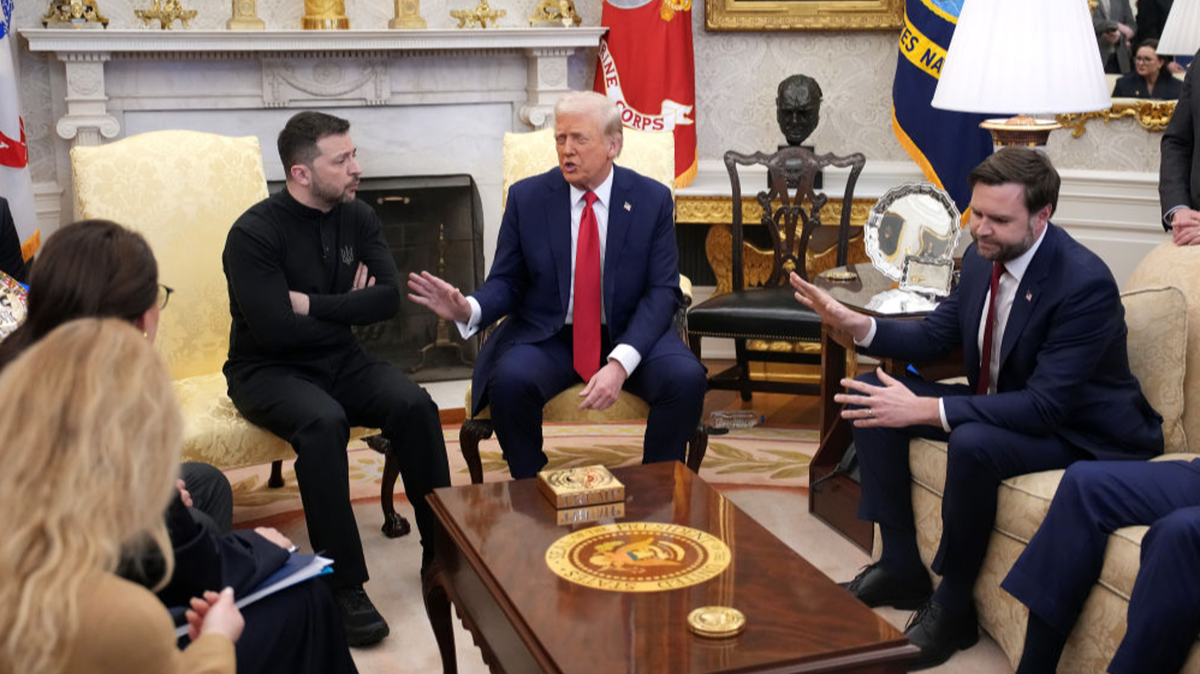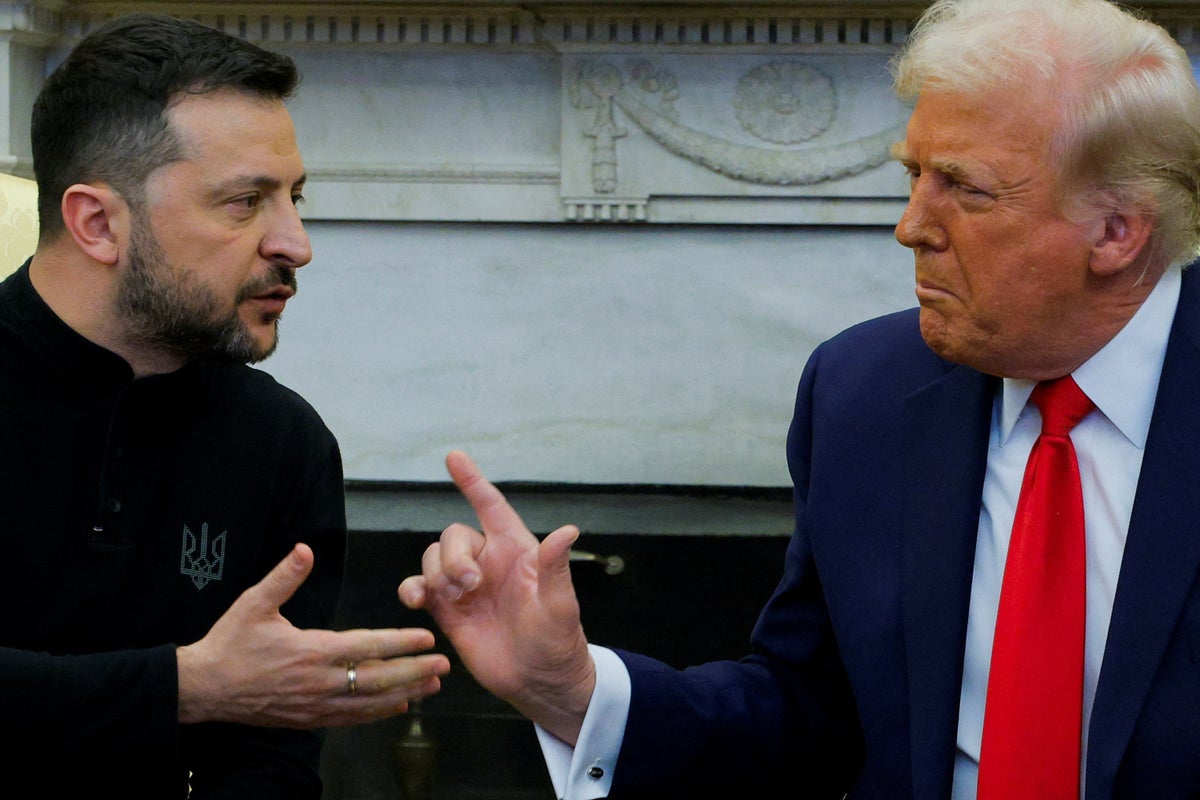Col. John Eidsmoe: When it comes to gambling and crime, do we really…

My last three 1819 News columns have stressed that (1) gambling preys upon the poor and fails to create new wealth; (2) gambling was a disaster in colonial America and the American West; and (3) gambling leads to a mental disorder recognized by the American Psychiatric Association affecting up to 2 million Americans.
This column will examine the relationship between gambling and crime.
Crimes Committed by Gambling Addicts
Drug addicts are often driven to theft and other crimes to obtain money to support their habits. Do gambling addicts do the same?
A 1977 study entitled Gambling in Connecticut observed,
When these men begin to lose big, as they must eventually, their financial situation becomes increasingly critical, leading them to steal, embezzle, and to arrange loans under fraudulent conditions to obtain the funds necessary to continue their gambling.
Gerald T. Fulcher of the Delaware Council on Gambling Problems has estimated that 86% of compulsive gamblers commit felony crimes to further their addiction. The American Insurance Institute estimates that 40% of the nation’s white-collar crime is committed by compulsive gamblers, as well as 20% of spouse abuse. Crimes commonly committed by compulsive gamblers include burglary, robbery, bad checks, embezzlement, extortion, and fraud. Often the gambler justifies acts of theft and fraud with the desperate conviction that, this time, he is going to win big and will be able to repay everything he has stolen. The free flow of alcohol and the easy access to drugs and prostitutes, also tend to lessen inhibitions and facilitate crime.
Legal and Illegal Gambling
Alabama Gov. Kay Ivey says that by legalizing gambling, we’ll take control of it and eliminate illegal gambling. But the plain fact is, when gambling is legalized, both legal and illegal gambling increases. Why would people engage in illegal gambling if they can gamble legally?
The Congressional study Gambling in America noted,
The mere presence of more opportunities to gamble increases the amount of gambling done. Moreover, the greater the total volume of gambling, the more favorable the environment is for the illegal operations.
The Organized Crime Section of the U.S. Department of Justice has concluded that “the rate of illegal gambling in those states which have some legalized form of gambling was three times as high as in those states” which do not have legalized gambling. Since Connecticut legalized gambling, Austin McGuigan has prosecuted more than one thousand cases of illegal gambling. He says the evidence is “irrefutable” that legalized gambling causes increased illegal gambling.
According to Durand Jacobs, Chief of Psychology Services at the Veterans Administration Hospital in Loma Linda, California, “We have firm evidence to show that once a state promotes or endorses any kind of gambling, both legal and illegal forms of gambling accelerate.”
When gambling is legalized, many are likely to think, “How can gambling be morally wrong if the government makes it legal, or even runs and promotes it?” And when the gambling industry skillfully cultivates a wholesome image by pointing to all the respectable people who gamble, all the tax revenue raised, and all the worthwhile projects the gambling industry supports, gambling loses its stigma and becomes almost a patriotic duty. Dr. Valerie Lorenz of New Foundations, a Maryland compulsive gamblers’ treatment center, says simply, “Social acceptance of gambling produces more gamblers.”
Also, the illegal operators can offer better odds because they don’t pay taxes, keep the gambler anonymous by not keeping records, and offer credit.
Corruption Within Legalized Gambling Systems
Not only does legalized gambling legitimize gambling, it also invites corruption within the gambling system. Consider:
* An Ohio Lottery employee convicted of stealing $8500 from the lottery fund.
* A Connecticut Lottery employee convicted of obtaining money under false pretenses by rigging lottery drawings.
* Pennsylvania lottery personnel who rigged the lottery to assure themselves of big winnings. Lottery winners were determined by an air blower that shoots up ping pong balls with numbers on them; the lottery personnel injected fluid into every ball except those with their winning numbers.
Nor is corruption limited to lotteries. Practices in the racing industry include the use of “ringers” (substituting slow horses for fast ones, or vice versa), drugging animals to make them faster or slower, fraudulent use of the computer to alter the odds, and illegal bookmaking.
When states legalize gambling and establish commissions to regulate the industry, all too often those who are chosen to serve on the commission have ties to gambling themselves, or are “bought off” by the gambling industry.
Do we really think Alabama will be different?
Gambling and Organized Crime
Former FBI Director William Webster stated frankly that he knows of “no situation in which legalized gambling was in place where we did not eventually have organized crime.”
When New Jersey legalized casino gambling in 1976, Governor Brendan Byrne stood on the Boardwalk of Atlantic City and declared, “Organized crime is not welcome. I warn them, keep your filthy hands out of Atlantic City.” But eight years later a former aide to the governor admitted, “We were naive to think we could keep organized crime out. Now we recognize that the price of legalized gambling is that we become the focus of attention for undesirable elements.”
Why is organized crime attracted to gambling? Dr. Craig A. Zendzian, a former New York police officer who spent much of his career investigating and studying organized crime, puts it simply: “Gambling is, and always will be, a ‘big money maker’ for organized crime.” He says further,
Anyone who goes into gambling should recognize, particularly in an urban center, that organized crime will be attracted to it like sharks to a bloated body. … Gambling provides a natural climate for that type of criminal element, and that’s the price we’re going to pay.
H. Clayton Waddell says, “The gold mine of the underworld is the gambling racket, and dimes and dollars from the pockets of ordinary, almost-honest citizens provide the gold.” Organized crime profits from gambling by:
* owning the casinos outright and thus taking in the profits;
* skimming off the top (taking a “cut” before casino income is reported to the authorities);
* laundering money through casinos;
* owning or controlling the many industries that support and maintain the casinos, such as food services, hotels, manufacturing of gaming devices, banking, bonding, pawn shops, liquor, tobacco, prostitution, etc.
Once the gambling industry gains a foothold in a state or community, it begins to exert a powerful influence on state and local politics. The Kefauver Commission concluded that “the availability of huge sums of cash and the incentive to control political action resulted in gamblers and racketeers too often taking part in government… Where gambling receives a cloak of respectability through legalization, there is no weapon which can be used to keep the gamblers out of politics.”
If we think Alabama will be different, we need only remember Phenix City.
Disclaimer: Portions of this article were originally published in Col. Eidsmoe’s book, “Legalized Gambling: America’s Bad Bet,” and are reprinted in this column with the author’s permission.
Col. Eidsmoe is Professor of Constitutional Law for the Oak Brook College of Law & Government Policy (OBCL.edu) and Senior Counsel for the Foundation for Moral Law (morallaw.org). He may be reached for speaking engagements at eidsmoeja@juno.com.
The views and opinions expressed here are those of the author and do not necessarily reflect the policy or position of 1819 News. To comment, please send an email with your name and contact information to Commentary@1819news.com.
Don’t miss out! Subscribe to our newsletter and get our top stories every weekday morning.
Related
Sports Betting Giant Flutter Forecasts Strong U.S. Growth To Drive…
Flutter CEO Peter Jackson.Courtesy of Flutter Entertainment Flutter Entertainment, the world’s largest online gambling company, said that it’s expecting str
BetBlocker Enters US Responsible Gambling Market
The charity, originally from the UK, launched a US unit, BetBlocker US, as part of its North American entry. The organiz
Viewers react to ’embarrassing’ JD Vance comment toward Zelenskyy as…
Social media users watching clips of the heated meeting between President Donald Trump, Vice President JD Vance and President Volodymyr Zelenskyy have called a
Ukraine latest: Zelensky urges Trump to stand ‘more firmly on…
We have Zelensky's statement in full Below, we have Ukrainian president Volodymyr Zelensky’s statement in full after touching down in the UK following a fiery













